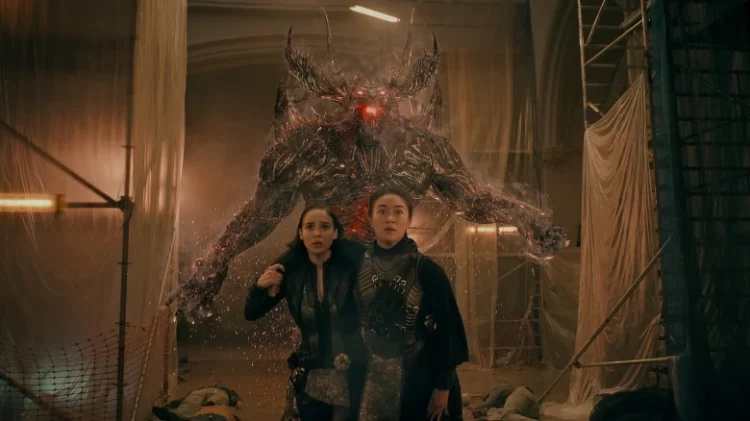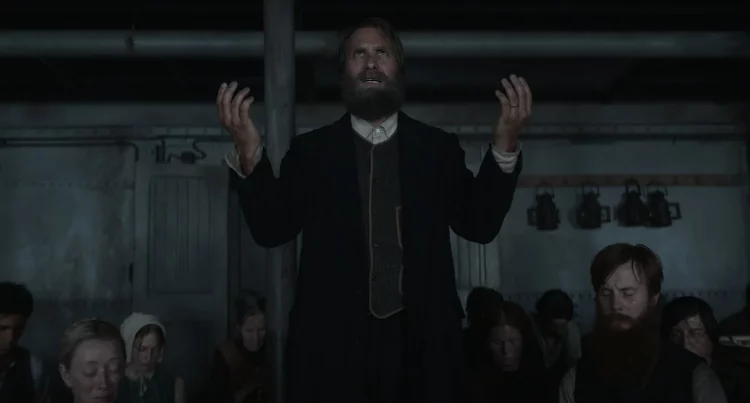
For many fans, Netflix seems to be in hot water. TV show cancellations are a common occurrence in today’s entertainment landscape, with over 20 shows getting the axe each year. However, cancellations on streaming platforms differ from those on traditional broadcast television. Streaming services prioritize new subscribers over viewership numbers. Take Sandman, for instance. The DC show emerged as a surprise hit, racking up over 328 million hours of viewership. While not quite reaching the heights of Wednesday or Squid Game, it’s still an impressive feat. However, the series reportedly had a budget of $165 million.
Why High Viewership Isn’t Always Enough
For Sandman to warrant another season, it needed to achieve Stranger Things-level success. This is why Netflix took its time before greenlighting a second season. The same holds true for most Netflix properties. Recently, the streaming giant has been on a cancellation spree, with shows like Inside Job, 1899, Warrior Nun, The Midnight Club, and Resident Evil among the 20 series scrapped in 2022. Fans have been particularly vocal about their disappointment over the cancellations of Warrior Nun and 1899.

Netflix Co-CEOs Defend Cancellation Decisions
Despite the backlash, Netflix, as a business, isn’t likely to reverse its decisions. Co-CEOs Ted Sarandos and Greg Peters addressed the rationale behind their cancellations in an interview with Bloomberg. Sarandos stated, “We have never canceled a successful show. Many of these shows were well-intended but talked to a very small audience on a very big budget.” He went on to explain that the key is to cater to a small audience with a small budget and a large audience with a large budget, and if done correctly, a show can continue indefinitely.
In simpler terms, the co-CEO claims that a show’s fate ultimately lies in the hands of its audience. While this statement may not come as a surprise to those familiar with the industry, it does raise eyebrows when considering the notion that Netflix doesn’t cancel successful shows.

Not All Cancellations Are Created Equal
The Midnight Club may not have been a massive hit, but its numbers didn’t necessarily warrant cancellation. Interestingly, once it was announced that Mike Flanagan and Trevor Macy were leaving for Amazon, Netflix quickly pulled the plug on the series. Furthermore, the Marvel properties, including Punisher, Daredevil, Luke Cage, Jessica Jones, and Iron Fist, were all canceled upon the launch of Disney Plus, despite their popularity. Apart from The Midnight Club, Sarandos’ explanations hold water, but it’s clear that other factors can contribute to a show’s cancellation beyond viewership alone.
Despite the uproar from fans over Netflix’s recent wave of cancellations, the streaming service has actually seen growth since the beginning of 2022. Netflix added over 8 million subscribers in the fourth quarter, with their new ad-tier plan likely playing a significant role. Initially, the ad-tier plan seemed to attract only existing members looking for a cheaper option. However, while it’s not confirmed that the ad tier contributed to the increase in subscribers, it’s a plausible explanation.
As for the future of the canceled shows, perhaps the influx of new subscribers will spark interest in these series and potentially revive them for another season. Regardless, Netflix’s approach to TV show cancellations, while not entirely surprising, does reveal that factors beyond viewership can play a role in a show’s fate.
 Follow Us
Follow Us





